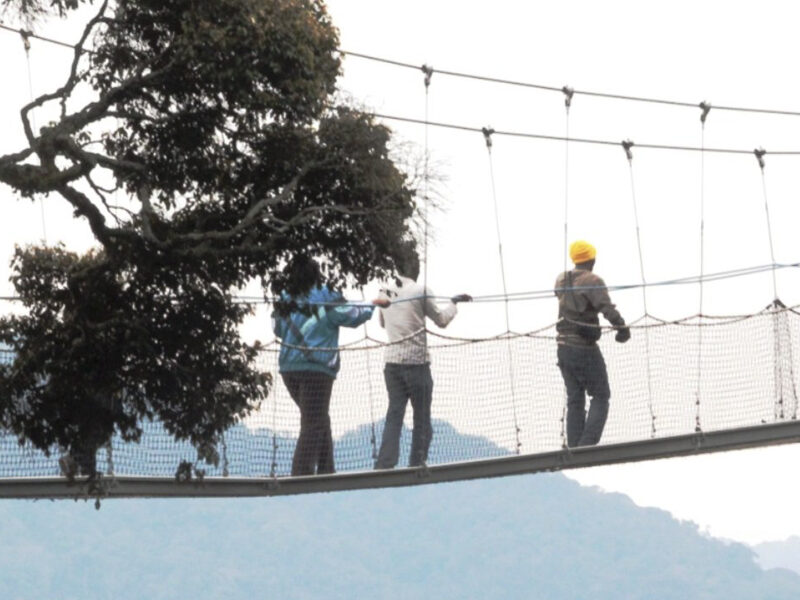10 Days Gorillas And Game In Uganda, Rwanda And Burundi
3000$
per personBujumbura City tour, See the Explorers Memorial, Lake Tanganyika, Kibira Park, track gorillas in Rwanda, Uganda and/or Congo, Visit Lake Bunyonyi in Uganda.
Visit the three operational gorilla countries of the world Rwanda for Parc National des Volcans (PNV), Uganda for Bwindi and Mgahinga; and Congo for Virunga National Park. PNV, Virunga in Congo and Mgahinga are on either side of the misty Virungas. The tour starts with Bujumbura in Burundi for Source of the Nile and Kibira National Park before continuing to Parc National des Volcans gorilla park in Rwanda, continuing to Mgahinga and then to Bwindi in Uganda.
Clients have an opportunity to track gorillas for a total of FOUR times in the three countries. Tracking and seeing these great primates in their different, natural surroundings is a memorable experience, with each park presenting its unique attractions. Other activities possible include; tracking the golden monkeys, climbing a volcano, nature walks in the forests for birds, or visiting local villages.
-
DepartureTour startTour starts from: “Entebbe” at 10:00 a.m. every Saturdays from: Kampala, Entebbe, Uganda
-
Departure TimePlease arrive by 9:15 AM for a prompt departure at 9:30 AM.
-
Return TimeApproximately 8:30 PM.
-
Dress CodeCasual. Comfortable athletic clothing, hiking shoes, hat, light jacket.
-
Include
Day 1: Arrive Bujumbura
Day 2: Kibira National Park Burundi
Day 3: To Kigali, Rwanda
Day 4: Kigali to Parc National De Volcans
Day 5: In Parc National Des Volcans
Day 6: To Uganda
Day 7: Gorilla Tracking in Uganda or Congo
Day 8: Lake Mutanda to Lake Bunyonyi
Day 9: Back to Rwanda
Day 10: Fly out
Tour Location
Bujumbura City tour, See the Explorers Memorial, Lake Tanganyika, Kibira Park, track gorillas in Rwanda, Uganda and/or Congo, Visit Lake Bunyonyi in Uganda.
-
Uganda's history is marked by pre-colonial kingdoms, British colonial rule, and post-independence challenges. The country's borders were drawn arbitrarily in the late 19th century, encompassing diverse societies. In 1894, Uganda became a British protectorate, and it gained independence on October 9, 1962. Following independence, Uganda faced a period of political instability, including civil wars and military coups.Pre-Colonial Period:
- Uganda's early history is characterized by the movement of various groups of cultivators and herders, leading to diverse languages and cultures.
- The region was home to a variety of centralized kingdoms, including Buganda, Bunyoro, and others, as well as more decentralized Nilotic and Sudanic peoples.
- Evidence of human activity in Uganda dates back to at least 50,000 years ago, with Acheulean tools found along the Kagera River valley.
British Colonial Period (1894-1962):- In 1894, Uganda was declared a British protectorate.
- The British administration extended control beyond Buganda by signing treaties with other kingdoms like Toro, Ankole, and Bunyoro.
- Uganda was never fully colonized; instead, it developed a system of internal self-government through a Legislative and Executive Council.
- The British influence was strong in the late 19th century, particularly with the arrival of missionaries from the British Missionary Society and the French Roman Catholic White Fathers.
Independence and Post-Colonial Period (1962-Present):- Uganda gained independence on October 9, 1962, with Milton Obote as the first Prime Minister.
- The newly independent nation faced challenges, including civil wars and political instability, leading to a period of military coups and dictatorships.
- In 1995, a new constitution was adopted, establishing a non-party all-inclusive Movement System of government.
- In 2005, a referendum was held, resulting in a return to multi-party politics.
- Uganda has since made significant strides in restoring peace and rebuilding infrastructure, while also engaging in peacekeeping operations through the Uganda People's Defence Force.
Key Events and Figures:- Milton Obote: The first Prime Minister of Uganda, who played a key role in the independence movement and later served as President.
- Idi Amin: A military leader who seized power in 1971 and ruled Uganda for eight years, a period marked by human rights abuses and political instability.
- Yoweri Museveni: The current President of Uganda, who has been in power since 1986.
- Uganda's early history is characterized by the movement of various groups of cultivators and herders, leading to diverse languages and cultures.
Write a Review
Selected Hotels and Lodges








